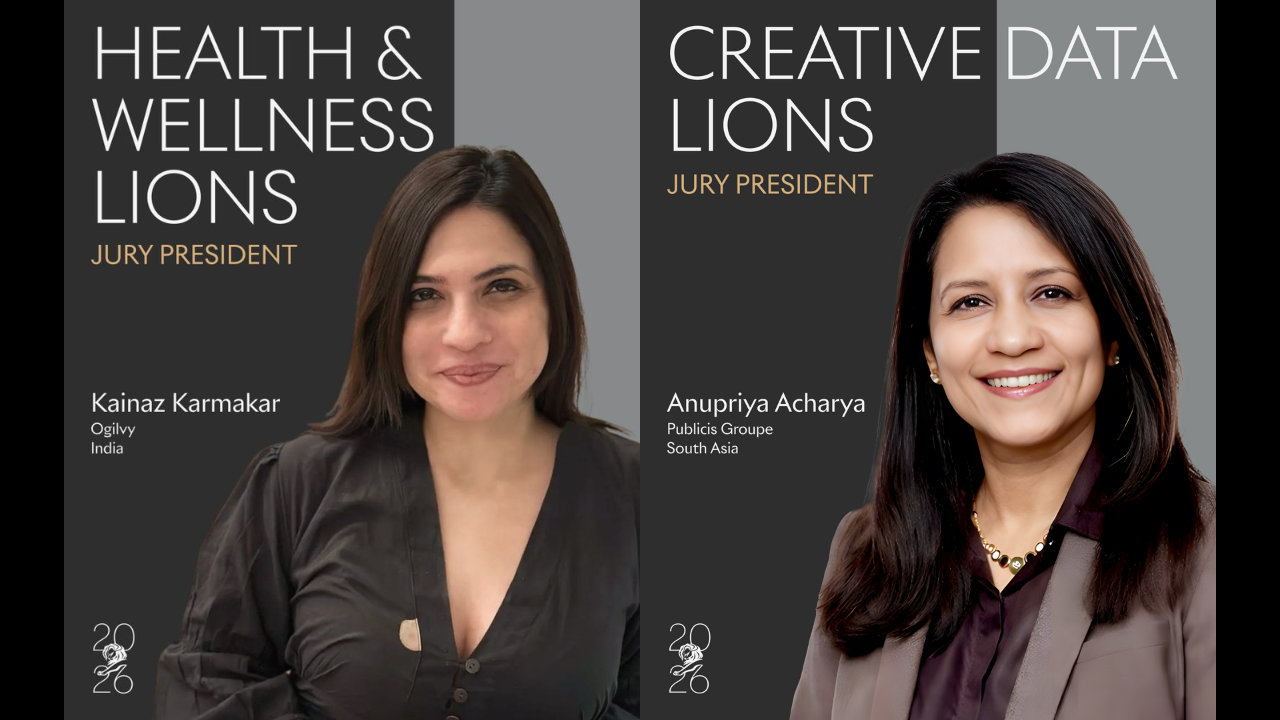The virtual audience at the ongoing Cannes Lions Festival of Creativity saw a session with Neil Lindsay, VP, WW Prime and marketing – Amazon, with historian and bestselling author of ‘Sapiens’ Yuval Noah Harari. The duo discussed the importance of storytelling in the evolution of the human species and the survival of societies.
Harari began the session with a simple, powerful observation. “There are interesting parallels between the success of evolution of societies and the evolution and success of brands. All the big structures of human society throughout history are brands,” he said.
Storytelling as a process
Speaking about what differentiates Homo Sapiens from the Neanderthals, Harari says humans can cooperate flexibly in very large numbers. “Animals can’t cooperate with over a hundred individuals. Neanderthals also never cooperated in large numbers. They could only cooperate with others of their kind. We, Homo Sapiens can cooperate with billions of strangers, even without meeting each other.”
Harari believes that at the core of every large human cooperation lies a fictional story that is recognised through storytelling.
Speaking about the success stories of Amazon, Lindsay narrated how one of the brand’s big, early ideas began from day one. He said, “It becomes a compelling story when you imagine how teams get inspired to wake up every day and invent on behalf of customers and keep having the opportunity to do so.”
Customer experience and loyalty
Lindsay then explained explains the concept of a ‘flywheel’, something that fools a person into thinking that it's all about growth. “Growth is actually in service of a low-cost structure, which is in service of lower prices. In turn, lower prices are about living a great customer experience. If customers have a great experience, they’re likely to talk about it to their friends and word-of-mouth advertising is the best form of advertising because it’s free. This attracts traffic that brings in sellers, and sellers bring more selection.” Highlighting this as another success story of Amazon, he is certain that all the arrows on the flywheel point to the customer experience.
When asked what makes a compelling story, Harari said, “In the competition between stories, it’s not necessarily the most truthful story that wins. The truth is often painful and people don’t want to hear it. One of the unfortunate things about human history is the disadvantages of truth. You need to make a special effort to stay loyal to reality, as you build your stories and brand.”
On the same lines, Harari asked Lindsay how brands should promote their stories and at the same time stay loyal to the brand’s values.
Answering this question, Lindsay believes the most interesting brands tell stories that amplify the truth about overcoming obstacles towards something worthwhile. “The best are the ones you don’t want to put down because the goals and challenges get bigger all the time. Prime was and still is a big idea. Chasing big ideas to live on the promise of those ideas and telling those stories effectively with consistency is what it takes to build a brand,” Lindsay added.
Uncertain about what final shape the pandemic will take, Harari asked leaders to choose to focus on the need for global cooperation and generosity in this crisis.
Talking about the challenges that the pandemic has brought out, Lindsay also spoke about the complications that come with video production and storytelling. On the bright side, he explained how, in some ways, it has also forced simplicity, particularly in the advertising sector, which has helped prompt some inspiring stories.
Harari built on that thought with “The most successful story ever told was that of money; it’s the only story that almost everybody believes, without exception.”
Role of trust and diversity
Correlating money and brands with trust, Lindsay said, “Money and successful brands are dependent on trust, something you earn and re-earn every day. The starting point of trust for corporations is to be competent. We work hard to deliver on time and have the right selection and great content and be transparent about our motivation.” He also stated that this is the reason behind Amazon encouraging people to visit its fulfilment centres and see what it’s like. He added, “It’s why we publish our diversity goals and Climate Pledges, knowing our carbon footprint and how hard it is to achieve our goals. There is an expectation for corporations to work hard and keep up the trust every day.”
Lindsay also declares that Amazon’s reputation as one of the most trusted companies around the world is never taken for granted.
Speaking about the successful evolution of mankind, Harari takes the example of the last century, which sparked the feminist revolution. According to him, it was not only one of the biggest social revolutions in human history but was also very peaceful. “This gives me hope that we can continue to change human society for the better, and do it peacefully,” he added.
Lindsay also spoke about how marketers and brands have a role to play in encouraging inclusion, mostly in actions, but also in the stories they tell.
Concluding with his take on the correlation between the evolution of humans and brands, Harari said, “Brands are just stories that exist in our imagination. We created them to help people. Brands don't have a mind or feelings, but humans do. You must serve your brand, but in the end, make sure that it’s the humans who are happy.




